By Vincent Ramelli, CEO – LodgIQ
For years, I have seen revenue management occupying a yet critical but narrowly defined space in the hotel ecosystem. It has traditionally been a role grounded in numbers: monitoring pace, adjusting rates, watching competitor pricing, and updating spreadsheets. This work, though essential, has long kept talented revenue professionals locked into highly tactical routines, limiting their ability to influence broader business outcomes.
But change is in motion. Across the hospitality industry, there’s a growing recognition that the role of revenue management is evolving from tactical execution to strategic leadership. And at LodgIQ, we strongly believe this shift will define the next generation of high-performing hotel organizations.
From Analyst to Strategist: A Structural Shift
The evolution underway isn’t just about better tools. Rather, it’s about rethinking the value of the revenue manager. Today’s top hotels are no longer treating revenue management as a siloed function focused on rates and RevPAR. Instead, they’re leveraging the revenue managers’ unique visibility across pricing, demand, guest behavior and market trends, and empowering them to shape broader commercial decisions.
As an example, let’s take a nearly 200-room lifestyle Hotel in New York City. Their revenue manager has been working with LodgIQ for several years; through multiple platform iterations. What began as a move to reduce manual work has now become a strategic advantage. With pricing decisions automated through LodgIQ Autopilot, that revenue manager now spends her mornings reviewing market shifts, evaluating digital performance, and collaborating with marketing on initiatives that drive direct bookings and optimize channel contribution.
This isn’t an isolated case, but a window into what’s possible when pricing automation is done right.
The Bottleneck of Manual Control
Despite technological progress, a sizable portion of the industry still hesitates to automate pricing. Many revenue managers remain wary of giving up manual control, particularly in high-stakes markets or during compressed demand periods. The concern is understandable: no one wants to risk overpricing or underpricing inventory. But the cost of maintaining full manual control is often overlooked.
When revenue managers spend hours updating rates room by room, day by day, it creates an organizational bottleneck. Pricing decisions are delayed, opportunities are missed, and the team becomes reactive instead of proactive. Worse, high-value thinking such as market positioning, brand strategy and pricing integrity get crowded out by low-leverage tasks, when it should actually drive long term growth.
Another example is a hotel with over 40 room types in a resort-style layout. Revenue managers were spending two hours every morning simply pushing rate updates. With automation in place, the team can now spend these hours to analyze patterns, test pricing scenarios, and align better with sales and marketing efforts.
Automation as the Enabler, Not the Endgame
It’s important to understand that automation isn’t about removing humans from the process. We should instead look at automation as a way to reassign our talents to the right part of the process. LodgIQ’s RMS doesn’t just push prices, it learns. It identifies patterns in market data, pickup behavior and competitive set shifts, and then provides recommendations grounded in machine learning. This frees up the revenue manager to evaluate opportunities, run strategic experiments, and refine pricing narratives.
In this Manhattan Hotel we’ve accompanied, automation enabled the team to rethink how premium rooms were priced. Historically, their two-queen rooms were priced conservatively. They also made up nearly half the inventory. With automation surfacing patterns in demand and elasticity, the team discovered they could capture room-type rate premiums of over $500 on peak weekends. This wasn’t a result of risky pricing, it was the result of trusting a system that could see opportunities faster and more accurately than a manual workflow could.
The Expanding Role of the Revenue Manager
What’s most exciting about this shift is how it repositions revenue professionals within their organizations. With pricing execution automated, their time can be spent collaborating with digital marketing teams, shaping metasearch bidding strategies, refining OTA participation, and identifying high-value guest segments. They become central players in deciding not just how rooms are priced, but how they are sold, who they are sold to, and what long-term value those guests represent.
This is particularly important as we see customer acquisition costs rising and guest behavior changing. A revenue manager who understands the entire guest journey, meaning from Google search to checkout, is in a position to influence everything from conversion optimization to channel mix. But they can only take on this broader mandate if they’re not stuck manually adjusting prices every morning.
The examples I mentioned above illustrate this clearly. Back to the 200-room Manhattan hotel, their direct booking contribution is now over 40%, outpacing many branded full-service hotels. This didn’t happen by chance, it was the result of revenue management and marketing working hand-in-hand, supported by the insights and time made available through automation.
Why It Matters Right Now
The hospitality industry is being reshaped by technology, traveler expectations, and operational constraints. AI, cloud-native tools, and real-time analytics are becoming the norm, and no longer the exception. Hotels that fail to adapt risk falling behind not only in pricing performance, but in organizational agility too.
Revenue managers must now prepare to lead, and not just manage. This means embracing automation, refining their understanding of adjacent disciplines like marketing and reputation management, and stepping into strategic roles that influence the full commercial lifecycle of the hotel.
The LodgIQ platform is built for this transition. It automates what can be automated so your most valuable people can focus on what matters most and drive long-term revenue growth.
The Bottom Line
As described above, the role of revenue management is changing. The question is not whether automation will be part of the future. It’s whether revenue professionals will use it to elevate their impact or be limited by old habits.
Those who embrace automation will find themselves leading the conversation on guest acquisition, brand value, and long-term profitability. Those who resist it may find themselves stuck in a loop of manual tasks while the market moves forward.
I believe the future belongs to those who lead boldly; that is why we are building the tools to help them do just that.
Stay Informed with LodgIQ:
Subscribe to our newsletter for the latest insights and strategies from our team of revenue management experts. Visit https://lodgiq.com/ and stay ahead in the hospitality industry.







